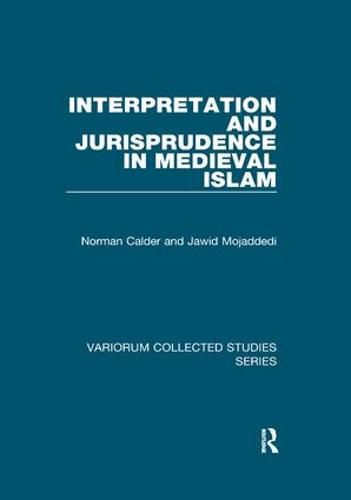Readings Newsletter
Become a Readings Member to make your shopping experience even easier.
Sign in or sign up for free!
You’re not far away from qualifying for FREE standard shipping within Australia
You’ve qualified for FREE standard shipping within Australia
The cart is loading…






At the time of his death in 1998, at the age of 47, Norman Calder had become the most widely-discussed scholar in his field. This was largely focused on his monograph, Studies in Early Muslim Jurisprudence (Oxford, 1993), which boldly challenged existing theories about the origins of Islamic Law.
The present volume of twenty-one of his articles and book chapters represents the full richness and diversity of Calder’s oeuvre, from his initial doctoral research on Shii Islam to his later more philosophical writings on Sunni hermeneutics, in addition to his numerous studies on early Islamic history and jurisprudence. Calder’s pioneering research, which was based on a sensitive reading of medieval texts fully informed by contemporary critical theory, often challenged the established assumptions of the day. He is known in particular for urging a reassessment of widely-held prejudices which underestimated the degree of creativity in medieval Islamic scholarship. Many of the articles in this volume have already become classics for the fields of Muslim jurisprudence and hermeneutics.
$9.00 standard shipping within Australia
FREE standard shipping within Australia for orders over $100.00
Express & International shipping calculated at checkout
At the time of his death in 1998, at the age of 47, Norman Calder had become the most widely-discussed scholar in his field. This was largely focused on his monograph, Studies in Early Muslim Jurisprudence (Oxford, 1993), which boldly challenged existing theories about the origins of Islamic Law.
The present volume of twenty-one of his articles and book chapters represents the full richness and diversity of Calder’s oeuvre, from his initial doctoral research on Shii Islam to his later more philosophical writings on Sunni hermeneutics, in addition to his numerous studies on early Islamic history and jurisprudence. Calder’s pioneering research, which was based on a sensitive reading of medieval texts fully informed by contemporary critical theory, often challenged the established assumptions of the day. He is known in particular for urging a reassessment of widely-held prejudices which underestimated the degree of creativity in medieval Islamic scholarship. Many of the articles in this volume have already become classics for the fields of Muslim jurisprudence and hermeneutics.